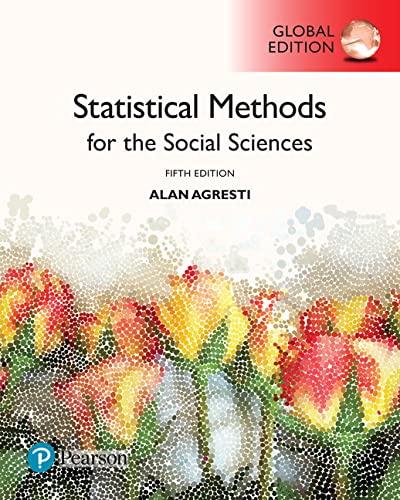The probability distribution associated with the outcome of rolling a balanced die has probability 1/6 attached to
Question:
The probability distribution associated with the outcome of rolling a balanced die has probability 1/6 attached to each integer, {1, 2, 3, 4, 5, 6}. Let (y1, y2) denote the outcomes for rolling the die twice.
(a) Enumerate the 36 possible (y1, y2) pairs (e.g., (2, 1)
represents a 2 followed by a 1).
(b) Treating the 36 pairs as equally likely, construct the sampling distribution for the sample mean ¯y of the two numbers rolled.
(c) Construct a histogram of the (i) probability distribution for each roll, (ii) sampling distribution of ¯y in (b).
Describe their shapes.
(d) What are the means of the two distributions in (c)?
Why are they the same?
(e) Explain why the sampling distribution of ¯y has relatively more probability near the middle than at the minimum and maximum values. (Hint: Note there are many more (y1, y2) pairs that have a sample mean near the middle than near the minimum or maximum.)
Step by Step Answer:

Statistical Methods For The Social Sciences
ISBN: 9781292220314
5th Global Edition
Authors: Alan Agresti






